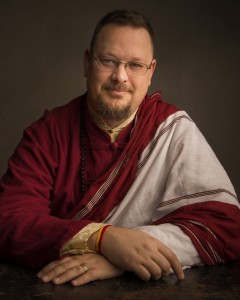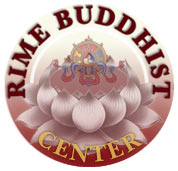To Have a Spiritual Home
 “Your spiritual home is the place where you feel that you belong, usually because your ideas or attitudes are the same as those of the people who live there.” – Collins Dictionary
“Your spiritual home is the place where you feel that you belong, usually because your ideas or attitudes are the same as those of the people who live there.” – Collins Dictionary
Every Sunday, when reading the announcements during the service, we ask if there are any first-time visitors present. We then say that, if they are looking for a spiritual home, we hope that they will consider the Rime Center as that home. But, what does it mean to have a spiritual home?
If you look it up, you might find a definition similar to the one found in the Collins dictionary: “Your spiritual home is the place where you feel that you belong, usually because your ideas or attitudes are the same as those of the people who live there.” When I think of a spiritual home, I think back on my grandparents and the relationship they had with their church.
Their church was not just the place they went on Sunday or Wednesday evenings. It was a place where, as the definition above states, they felt like they belonged, a place that gave them meaning and purpose. For them, the church was more that than just the bricks and mortar, it was where they could be around others who shared their values. It was a support system for them; one could even argue an extended family.
I’m happy to say that, in many ways, we have that here at the Rime Center. The Rime board has worked very hard to make the Rime Center a place where those of us who appreciate the teachings of the Buddha can come and feel like we belong. A place where we can learn about Buddhism in the Tibetan tradition, to have opportunities to engage in meaningful practices, and practice compassion and generosity.
I want this spiritual home to continue for future generations, so I am glad that the Rime Center is pursuing a permanent location owned by our community. We have taken the first steps toward that process by buying land. That was the easy part. Now comes the hard part – generating the resources needed to build our new temple. Raising the money needed to do this is no small feat, and will take everyone pitching in.
 In an essay written by Susan Elbaum Jootla on the Practice of Giving, she says, “The Buddha said that the practice of giving will aid us in our efforts to purify the mind. Generous gifts accompanied by wholesome volition help to eradicate suffering in three ways. First, when we decide to give something of our own to someone else, we simultaneously reduce our attachment to the object; to make a habit of giving can thus gradually weaken the mental factor of craving, one of the main causes of unhappiness. Second, giving accompanied by wholesome volition will lead to happy future births in circumstances favorable to encountering and practicing the pure Buddha Dhamma. Third, and most important, when giving is practiced with the intention that the mind becomes pliant enough for the attainment of Nibbana, the act of generosity will help us develop virtue, concentration and wisdom (sila, samadhi, pañña) right in the present. These three stages make up the Buddha’s Noble Eightfold Path, and perfecting the path leads to the extinction of suffering.”
In an essay written by Susan Elbaum Jootla on the Practice of Giving, she says, “The Buddha said that the practice of giving will aid us in our efforts to purify the mind. Generous gifts accompanied by wholesome volition help to eradicate suffering in three ways. First, when we decide to give something of our own to someone else, we simultaneously reduce our attachment to the object; to make a habit of giving can thus gradually weaken the mental factor of craving, one of the main causes of unhappiness. Second, giving accompanied by wholesome volition will lead to happy future births in circumstances favorable to encountering and practicing the pure Buddha Dhamma. Third, and most important, when giving is practiced with the intention that the mind becomes pliant enough for the attainment of Nibbana, the act of generosity will help us develop virtue, concentration and wisdom (sila, samadhi, pañña) right in the present. These three stages make up the Buddha’s Noble Eightfold Path, and perfecting the path leads to the extinction of suffering.”
She also states, “Material gifts of a religious nature would include contributions towards the erection of a new temple or shrine, gold leaf to help gild the umbrella of a shrine, or the purchase of a Buddha statue for a temple. The recipients of such gifts are the general public — whoever comes to the temple or worships before the Buddha image.”
It is going to take a continued effort on the part of the Rime Center’s community, by making contributions to the Tibetan Buddhist Temple Fundraiser. Every amount, small or large, helps us move closer to our goal. Please consider making either a one-time or recurring donation to our GoFundMe site.
“Therefore the wise give gifts. Seeking bliss, they would subdue the stain of miserliness. Established in the three-fold heavenly world, they enjoy themselves long in fellowship with the devas.” – Dana Sutta


